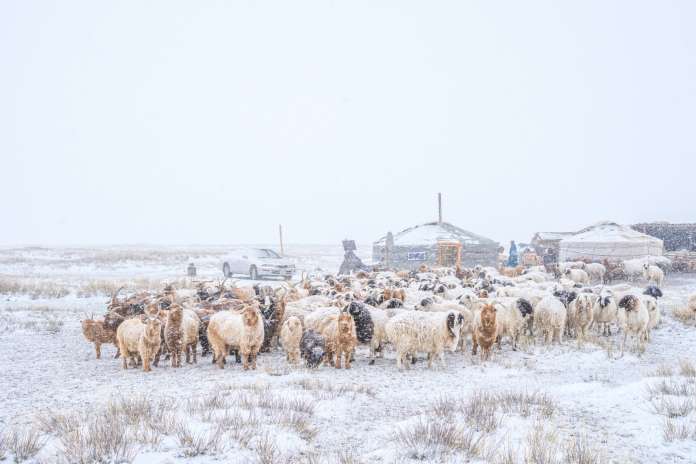It has been a brutal winter season in 2022/2023 in Mongolia, and it shows no signs of abating even as summer approaches.
Electroverse reported in early May the fact that the international NGO, “Save the Children,” put out a call for emergency support for families in Mongolia.
“A bitterly cold winter after a summer of drought has left herder families in Mongolia without livestock and facing severe food shortages as well as struggling to afford basics such as school supplies, hygiene items, and healthcare,” reported Save the Children.
In its late-April call for aid Save the Children wrote:
Currently 13 of Mongolia’s 21 provinces are experiencing a dzud. It’s a natural phenomenon unique to Mongolia, when heavy snow and extreme cold follow a summer drought resulting in insufficient grazing pastures and killing livestock. Between 1940 and 2015, there were official “dzud declarations” made twice a decade. However, dzud’s have increased in frequency, with occurrences now happening annually.
This year, winter temperatures dropped as low as -40° Celsius causing many animals that were already malnourished to perish due to starvation or freezing, affecting the livelihoods of nearly 200,000 households who make an income from herding goats, sheep, cattle, horses, yaks, and camels. The dire situation is exacerbated by inflation, which skyrocketed in 2022.
As a result of the dzud, around 213,000 people, including 80,000 children, are now in need of humanitarian aid including food, access to health facilities, and hygiene items. During a dzud, children under five are at high risk of malnutrition, respiratory diseases, and injuries, as their caregivers struggle to afford attention and healthcare.
In late-May it seems little has changed. Severe snowstorms and extreme cold temperatures swept across the country.
“A total of 127 people, mostly nomadic herders, went missing in the dust and snow storms that started in the eastern provinces of Sukhbaatar and Khentii,” said Mongolia’s National Emergency Management Agency (NEMA) in a May 19 statement. “125 of them have been found alive. Unfortunately, two people have lost their lives.”
Reporting on the dangerous return of unseasonable winter weather to Mongolia, Xinhua news says that in addition to endangering livestock and herders, the high winds and blowing snow made travel dangerous, damaged buildings, and delivered power outages from downed powerlines.


